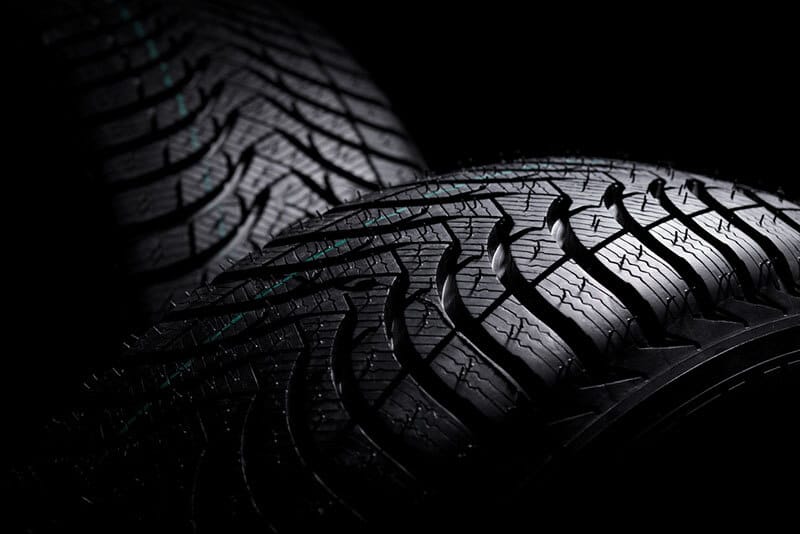What Tires Are Subject to the Michelin Tire Recall?

The nearly 800,000 tires involved in the July 27, 2012 recall were:
- BFGoodrich commercial tires LT 235/85R16 120Q LRE and LT 245/75R16 120Q LRE
- Uniroyal Laredo tires LT 235/85R16 120Q LRE and LT 245/75R16 120Q LRE
The 1.2 million tires subject to the July 25, 2013 recall were:
- Michelin LTX M/S tires in a 225/75R16 size.
According to Michelin’s defect and noncompliance report to NHTSA, consumers used these tires primarily on commercial light trucks, vans, pickup trucks, and small recreational vehicles.
If any of these tires are mounted on your vehicle, you should visit your tire retailer for a free replacement or contact your tire manufacturer for more information.
At the Time of the Recall, Michelin Claimed No Injuries or Deaths Resulted from Defective Tires
When Michelin launched its 2013 recall of 1.2 million BF Goodrich and Uniroyal Laredo tires, the tiremaker reported to NHTSA that there were no reported injuries involving the recalled tires. However, seven months later, a recalled BF Goodrich light truck tire, was linked to a Florida crash that killed two and injured eight others.
Church Van Rollover
In February 2014, a 15-passenger van owned by the First Baptist Church of New Port Richey, Florida, was headed to a church camp in Covington, Georgia, when the left-rear tire suffered a catastrophic tread separation causing the vehicle to become uncontrollable and rolling over. An investigation by the National Transportation Safety Board (NTSB) concluded that the failed tire – a recalled Michelin-manufactured BF Goodrich Commercial T/A all-season radial tire – was likely the cause of the crash.
The NTSB probe noted several missteps that resulted in the recalled tire staying on the First Baptist Church van. First, when a church official purchased the tire from Sam’s Club in February 2012, he was not offered a tire registration form. Second, the church never received the recall notice from Michelin in 2014, because it went to the wrong address. The church had moved in 2008, and the billing records from Sam’s Club reflected the correct address. But the Sam’s Club repair orders had the church’s old address, and the Michelin notification was sent there. Third, the van was serviced at a Sam’s Club three months before the crash, but the tire technician did not notify the church that a recalled Michelin tire was mounted in the rear.
Many Recalled Tires Remain in Service
The Florida church van crash highlights a significant problem — defective recalled tires stay on the road because there are major gaps in the tire recall registration and notification system, and because there is no quick and easy way to identify recalled tires when a vehicle is serviced.
Many Consumers Never Receive Recall Notices
There are many scenarios in which a consumer might not receive a recall notification. Even if a recalled tire is part of a vehicle’s original equipment, the tiremaker is responsible for recall. Tire manufacturers identify consumers by working with the automakers and their dealerships to find the first purchasers of the vehicle, based on the Vehicle Identification Number (VIN) and tire lot records. The purchase of a vehicle secondhand or a consumer’s change of address may prevent the manufacturer from finding the tire owner.
If the tire is bought as a replacement, the consumer – with assistance from the tire retailer – would have had to fill out the tire registration form and send it back to the manufacturer to create a record of ownership. Yet many replacement tires are never registered. Tire dealers are responsible under federal regulations for providing tire registration cards to their customers. The Tire Industry Association, which represents the nation’s independent tire dealers who sell and service tires from multiple manufacturers, estimates that only a small percentage of tires purchased from one of its members is ever registered, because the manufacturer may not provide the registration cards to retailers, retailers may not give the card to the consumer, or the consumer may not fill it out. If a tire is purchased used there are no registration requirements.
In a 2015 special investigation report that examined the gaps in the recall system, the NTSB estimated that only 20 percent of recalled defective tires are taken out of service.
There are no databases accessible to consumers or service professionals that can quickly identify a recalled tire. Independent tire dealers often don’t receive any recall notification from manufacturers. They, like their customers, learn about recalls through the media. Yet, consumers often believe that the professionals servicing their tires know about recalls and would be able to alert them if one was on their vehicles.
Find Out If You Can Seek Compensation for Tread Separation Injuries
If you or a loved one suffered injuries because of a defective tire, you may be able to seek compensation for your injuries through e a product liability lawsuit against a tire manufacturer.
Learn more about your legal options by calling the product liability lawyers at Newsome Melton: 888-808-5977. We offer a free case evaluation for product liability cases.

